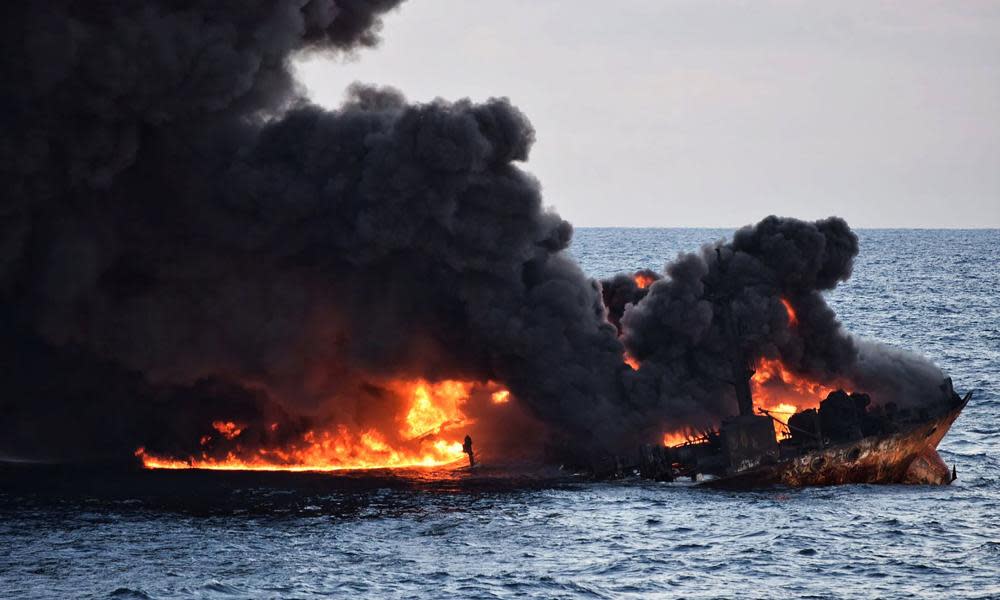Ban heavy fuel use in sensitive waters

The stricken tanker now sunk offshore of Shanghai should give pause to all with concern for the ocean, especially those who depend on sensitive, remote waters such as the Arctic. The tanker’s cargo of light fuel burned for a week, but response crews have voiced concerns about the heavy fuel oil or bunker fuel that powered the tanker. Heavy fuel is the dirtiest oil and highly persistent if spilled. A large heavy fuel spill into the waters of China’s largest fishery would compound the tragedy of the tanker’s missing crew. High seas, poisonous fumes, explosions, and winds have hampered rescue and response efforts this week. China’s calamity highlights efforts to prevent heavy fuel oil spills in other sensitive, but more challenging waters. International consideration is being given to phase out the use of heavy fuel oil in the Arctic where communities depend on marine life and spill response is negligible. If spilled, heavy fuel oil would remain for long periods and could spread widely if entrained in moving ice. This dangerous fuel is already banned under international rules for Antarctic waters. The Arctic deserves the same international precautions.
Sue Libenson
Senior Arctic program officer, Pacific Environment, Haines, Alaska
• Join the debate – email guardian.letters@theguardian.com
• Read more Guardian letters – click here to visit gu.com/letters

 Yahoo News
Yahoo News 
